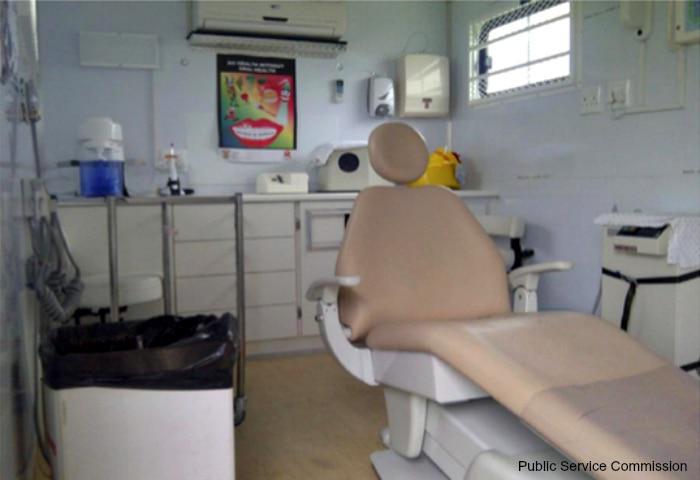National inquiry to be launched into emergency medical services

Even if the province was able to ensure all 416 ambulances in its fleet were functional, staffed and on the road, the province would still be more than 200 emergency vehicles short of national targets, according to a new roughly 100-page report released yesterday by the commission.

Those scarce ambulances running the gauntlet of the province’s rural roads face tough conditions after chronic neglect that may take decades to rectify, according to Human Rights Commission deputy chairperson Pregs Govender.
The province has the third worst network of paved roads in the country, according to Eastern Cape Department of Roads and Transport’s Craig McLachlan, who presented at a March two-day South African Human Rights Commission hearing into the state of EMS in the province.
The hearings – and the new report – are the culmination of almost two years of investigations by the commission.
In its new report, the commission found that a shortage of vehicles and staff, as well as poor roads and budgeting mean that some in the Eastern Cape have never seen an ambulance in their lives. For others, it has meant having to watch family members die before their eyes as some, like Xolisile Sam, report waiting as much as five days for an ambulance.
Sam’s sister Tumeka had been on tuberculosis treatment when her health deteriorated and she began having seizures.
“We called ambulance but it didn’t pitch that day,” he said recently from his home in Isilatsha village outside East London. “We waited on the second day and it didn’t pitch.”
Sam alleges emergency call centre operators repeatedly told him that his sister was not sick enough to merit an ambulance. Tumeka was taken to a health facility by ambulance five days after Sam made the call. She died days later. The pile of bricks she bought with dreams of expanding the family homestead still stand in the yard.
“Of course (when) the ambulance didn’t arrive in the first instance, it played a crucial role in her death,” he told Health-e News.
Better staffed and trained emergency call centres are just one of the commission’s recommendations for the Eastern Cape alongside better and more consistent reporting of its EMS department outcomes, such as response times.
Although a recent Health-e News investigation found that about 90 percent of Eastern Cape ambulances were operational as of late June, the commission has given the provincial department of health six months to respond to the report – and provide the commission with a detailed rescue plan. The commission will also launch a national investigation into the state of EMS in late October or early September.
Both Gauteng and Mpumalanga departments of health have also recently admitted to ambulances shortages.
The Eastern Cape Department of Health has already committed to purchasing more ambulances and employing more EMS staff, according to Govender.
The Rural Health Advocacy Project’s Dr Prinitha Pillay took part in the hearing and urged the commission and communities to remain vigilant.
“The Human Rights Commission and the state have a responsibility to monitor progress and more importantly to act where there is no progress,” she said.
The commission’s investigation was prompted by a 2013 complaint from the rural community of Xhora Mouth outside Mthatha. The report is expected to be officially launched in Xhora Mouth today. – Health-e News
- In Photos: Life and death in the Eastern Cape
- Watch how the Eastern Cape’s EMS crisis hits home for many in our latest documentary
Author
Republish this article
This work is licensed under a Creative Commons Attribution-NoDerivatives 4.0 International License.
Unless otherwise noted, you can republish our articles for free under a Creative Commons license. Here’s what you need to know:
You have to credit Health-e News. In the byline, we prefer “Author Name, Publication.” At the top of the text of your story, include a line that reads: “This story was originally published by Health-e News.” You must link the word “Health-e News” to the original URL of the story.
You must include all of the links from our story, including our newsletter sign up link.
If you use canonical metadata, please use the Health-e News URL. For more information about canonical metadata, click here.
You can’t edit our material, except to reflect relative changes in time, location and editorial style. (For example, “yesterday” can be changed to “last week”)
You have no rights to sell, license, syndicate, or otherwise represent yourself as the authorized owner of our material to any third parties. This means that you cannot actively publish or submit our work for syndication to third party platforms or apps like Apple News or Google News. Health-e News understands that publishers cannot fully control when certain third parties automatically summarise or crawl content from publishers’ own sites.
You can’t republish our material wholesale, or automatically; you need to select stories to be republished individually.
If you share republished stories on social media, we’d appreciate being tagged in your posts. You can find us on Twitter @HealthENews, Instagram @healthenews, and Facebook Health-e News Service.
You can grab HTML code for our stories easily. Click on the Creative Commons logo on our stories. You’ll find it with the other share buttons.
If you have any other questions, contact info@health-e.org.za.
National inquiry to be launched into emergency medical services
by lauralopez, Health-e News
October 2, 2015



